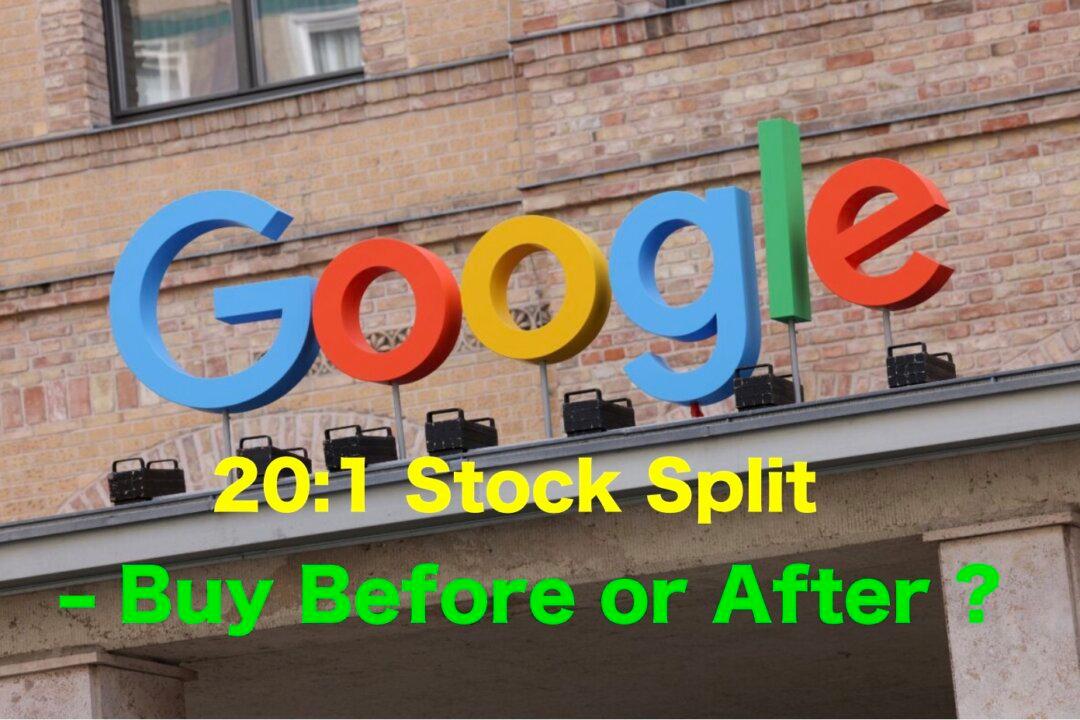As stock market corporate events go, a stock split is one of the more exciting deals.
On July 15, Alphabet, the parent company of Google, will execute a 20:1 stock split. Holders of Class A, Class B, and Class C shares as of July 1 will receive 19 additional shares for each share of stock they currently own.






